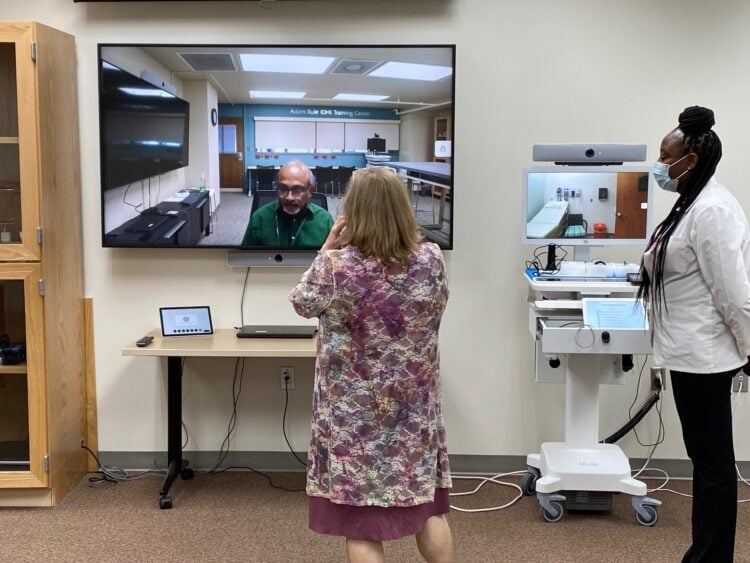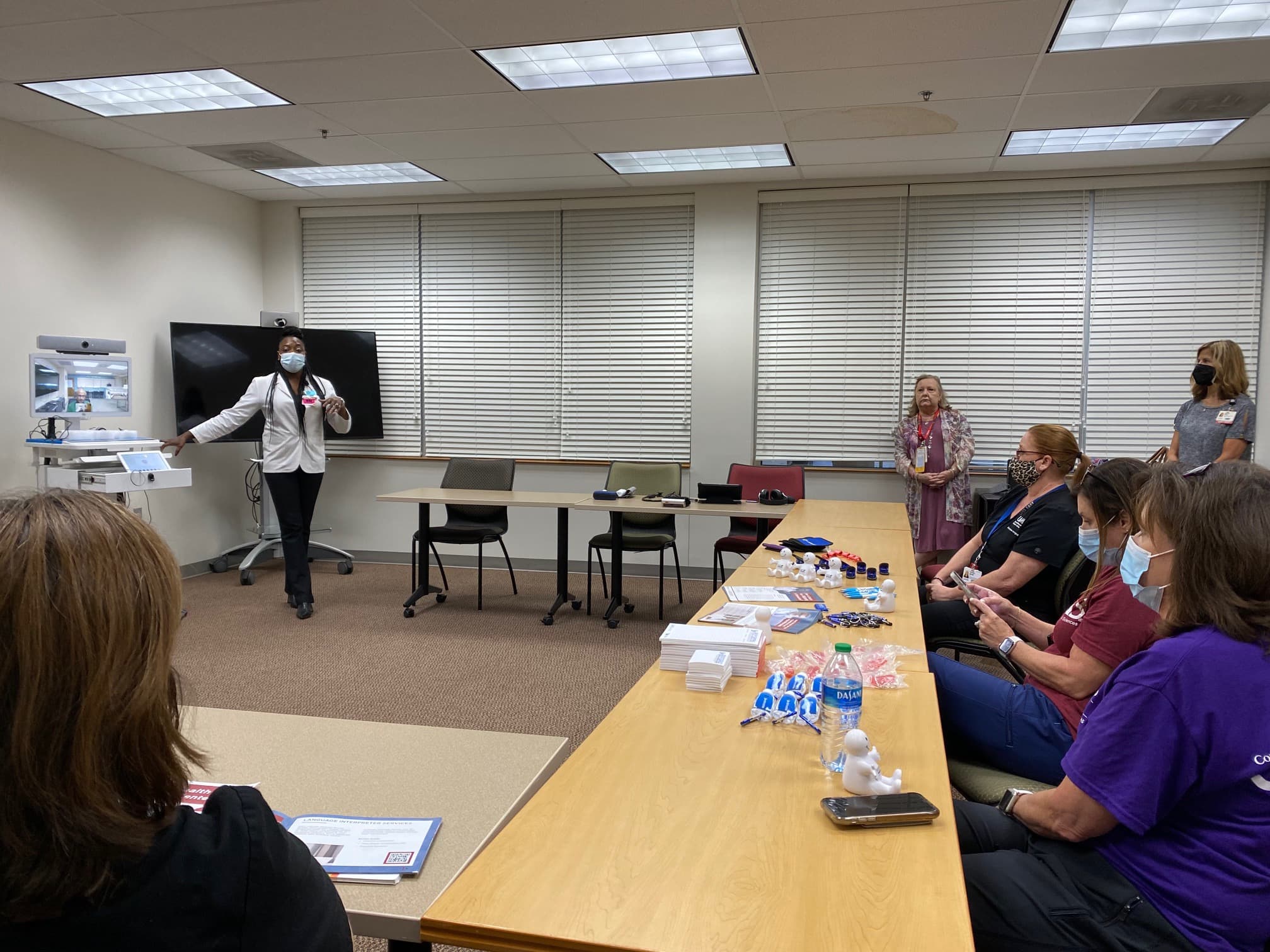UAMS Satellite Training Centers Make Digital Health Accessible, Understandable for All
| New medical innovations are always around the corner. The advent of the COVID-19 pandemic has accelerated a host of digital health options that connect patients across the state to providers, often miles away. More virtual visits mean less travel time for patients who don’t live close to their provider, which is a good thing. But all that technology can be confusing.
To help educate the public, the UAMS Institute for Digital Health & Innovation opened five satellite training centers in Arkansas and Tennessee late last year. Since then, they’ve held more than 40 collective trainings for hundreds of interested attendees.
The free trainings are a great way to get up-to-date on the latest technology, allowing attendees to take that know-how back home to streamline their care. These trainings aren’t just for health care professionals, but local businesses, colleges and universities, home health agencies and patients.
“The locations are in and around areas of the state that can benefit from using technology in providing access to care,” said Terri Imus, RN, BSN, a digital health coordinator with the institute. “The state could always use more, and we’re hoping we can deploy more locations in the future to help educate others in the use of digital health technology.”
Imus coordinates digital health training for the centers with Melony Stokes, DNP, RN, MSN. They are the clinical experts who direct the coordinators at each site. The training centers are equipped with remote patient monitoring devices and digital health tools and resources.
At the trainings, attendees learn the basics of digital health technology and the rules of a digital health visit as well as receive valuable resources. Each training is tailored to the needs of those attending. For example, health professionals also receive instruction on HIPAA-compliant video platforms, billing and continuing education.

Hari Eswaran, Ph.D., speaks via video call with Terri Imus, RN, BSN, and Melony Stokes, DNP, MSN, RNC-OB, as a visitor listens in from UAMS.
“We try to be specific in our training to address the needs of the person being trained,” Imus said. “Social workers or mental health providers may only need training on how to conduct a digital health visit with rules and advice for etiquette, while a nurse or doctor in a specific specialty may want to know what devices are needed with the patient to conduct an exam.”
The pandemic largely prevented in-person meetings, so it was only in July that the UAMS East Regional Campus training center in Helena-West Helena held an open house event.
Imus and Stokes got the attendees involved, picking two volunteers to act as provider and patient. Using a Bluetooth-capable stethoscope, they were able to let attendees hear the patient’s heart through a set of headphones on a paired tablet. They also demonstrated an electrocardiogram, or EKG device that can be worn on the ankle to monitor the heart’s electrical impulses. Finally, they used a connected otoscope to look inside the patient’s ear canal — with the results displaying in real time on an adjacent video feed.
The information presented can benefit the entire community.
“Those who attend these events can take the information they learn and educate their community on the advantages of digital health.”
Amy Moses, M.S.Ed., a program manager with the institute, said that the training centers are open to the public.
“This is a great opportunity for students to learn more about digital health in general, as well as potential career opportunities that they may not have considered,” Moses said. “They wouldn’t receive the same type of training as a clinical professional, but they can learn about the different devices, and we have self-guided educational materials on tablets, too. Interested individuals or groups can work with us to set up a visit at the closest satellite site.”
The satellite sites — and the South Central center housed at the UAMS institute — are funded by grants from the U.S. Department of Agriculture and a one-year grant from the Health Resources and Services Administration. Hari Eswaran, Ph.D., a professor and director of research with the UAMS Department of Obstetrics and Gynecology and the Institute for Digital Health & Innovation, is the principal investigator. Totaling more than $1.9 million, the two grants were awarded to expand and enhance digital health services nationwide and in rural communities.
The South Central Telehealth Resource Center serves rural communities in Arkansas, Mississippi and Tennessee and is part of the National Consortium of Telehealth Resource Centers. The consortium is comprised of 12 regional and two national telehealth resource centers.
To visit a training center, submit an IDHI Training Center Interest Form.
For more information about the South Central Telehealth Resource Center, visit LearnTelehealth.org.
